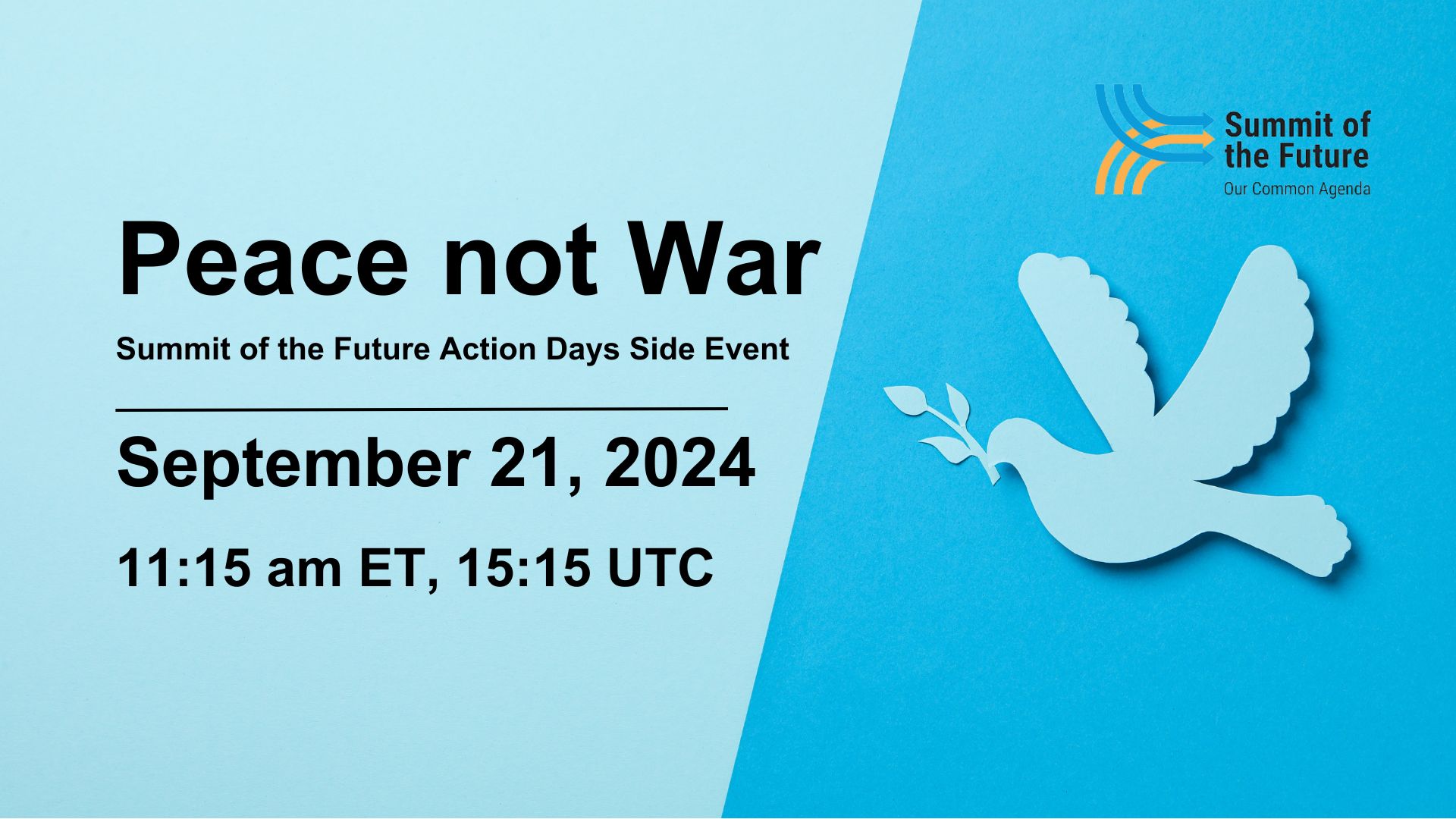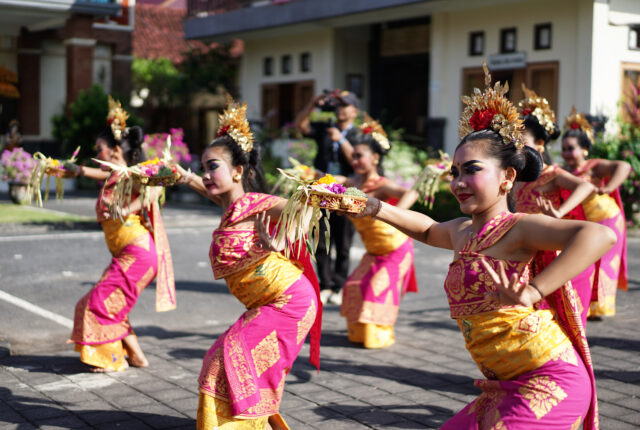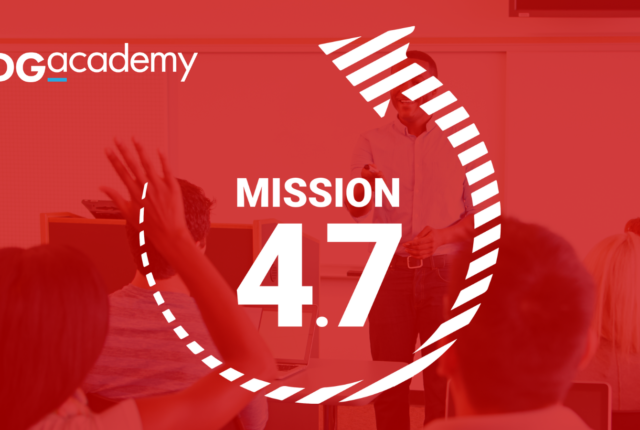This page was updated on September 24, 2024 to include a summary and recording of the event.
Reflections on the UN SOTF Action Days Side Event “Peace Not War”: Accelerating Peace Worldwide
“Peace is not a destination, but an ongoing process,” stated Ambassador Leonor Zalabata Torres, Permanent Representative of Colombia to the United Nations, capturing the essence of the discussions that took place on the International Day of Peace, September 21, 2024.
On this day, the UN Sustainable Development Solutions Network (SDSN), the Permanent Mission of Ireland to the United Nations, the Permanent Mission of Colombia to the United Nations, the United Nations Department of Global Communications, in collaboration with the United Nations Academic Impact (UNAI), UNESCO, Dag Hammarskjöld UN Library, and the International Federation of Library Associations and Institutions (IFLA) organized the “Peace not War” side event at the UN Summit of the Future Action Days.
The purpose of this event was to explore concrete actions toward global peace while learning from two peace processes – the Good Friday Agreement in Ireland, and the 2016 Final Peace Accord in Colombia – while fostering international cooperation, and engaging a diverse range of stakeholders.A key component of this dialogue was how peace, justice, and inclusion can accelerate pathways to achieving the Sustainable Development Goals (SDGs), with a focus on SDG 16 on peace, justice and strong institutions. This dialogue was framed by the recently adopted UN Pact for the Future, and esteemed speakers offered insights into building peaceful and inclusive societies.
Event Summary
Successful Peace Processes: The Cases of Ireland and Colombia
Distinguished keynote speakers, Ambassador David Donoghue, and Ambassador Juan José Quintana reflected on the peace processes in Northern Ireland and Colombia, respectively, as successful case studies for achieving sustainable peace.
Ambassador David Donoghue highlighted the Good Friday Agreement as a model for conflict resolution, emphasizing the importance of inclusive dialogues and respect for human rights in achieving sustainable peace. The agreement created a political framework that allowed both sides of the conflict in Northern Ireland to coexist in peace.
Donoghue emphasized that peace is a precondition for economic growth and societal stability, noting that foreign investments surged in Northern Ireland once peace had been achieved. He compared this historic process with the current pursuit of peace worldwide under the UN Pact for the Future, reinforcing the imperatives for inclusive societies as laid down in SDG 16.
Ambassador Quintana further reflected on the Peace Accord of Colombia in 2016, which ended over five decades of armed conflict between the Government of Colombia and the FARCs. For him, Colombia’s peace process had a unique holistic approach, as it addressed not only the conflict itself but also its deep-seated structural causes, such as political participation and agrarian reform. He stressed the importance of inclusive dialogue, citing Colombia’s “mesas” (local forums) that gathered diverse perspectives to shape the peace negotiations, including discussions on gender and women’s rights.
Quintana attributed the success of Colombia’s peace process to three key factors: political will, a weakened guerrilla force, and regional support from neighboring Venezuela. He also emphasized the critical role of the international community, particularly Norway, Cuba, and the UN: “without the international community, this [Colombia’s peace process] would not have been possible.”
Achieving Peace in the Future
Building upon these reflections, the event explored the topic of peace from different perspectives, focusing on information integrity, children, youth, and education.
Information Integrity and Peace
Maher Nasser addressed the urgent issue of information integrity in modern conflicts. In the digital era, misinformation and disinformation are regularly weaponized to create division and impede peace efforts. “The truth is the first victim of war,” said Nasser, introducing the Global Principles for Information Integrity, launched by the UN in June 2024. These principles aim to combat harmful information and ensure peace-making efforts are grounded in truth and transparency.
He warned that misinformation, amplified by social media algorithms, undermines democracy and human rights, and called for collective action from governments, tech companies, and civil society to address this growing challenge.
Children and Peace
“One in six children worldwide is a victim of war”, a sobering data shared by Asmita Satyarthi. “We have failed the children of the world”, Satyarthi declared, highlighting the devastating effects of conflict on children, who endure displacement, loss of family, and disruption in their education.
“What would we do if these children were our own?” she asked. Satyarthi called for a globalized compassion movement, where children, regardless of citizenship, are a global responsibility. In collaboration with UNESCO and Harvard, she announced the launch of the Compassionate Leadership Academy, which aims to teach leaders to prioritize compassion in their decision-making processes.
Youth and Peace
Gisselle Wolozny highlighted the critical role of youth in peace-building, citing UN Security Council Resolution 2250, which recognizes the importance of youth in global peace efforts. She argued that young people should be involved not only in issues directly affecting them but across all areas of governance, from democracy to climate action.
“We must promote an intergenerational and interstakeholder approach,” she urged, calling for policies that institutionalize youth participation in governance and peace-building processes.
Education and Peace
Professor Patrick Paul Walsh highlighted the transformative power of education in achieving peace. But how to achieve it if “only one in three 10-year-olds around the world can understand the meaning of a text in their own language”? he asked, underscoring the crisis in global education.
“Any ambition for peace and sustainable development is not going to happen if we have this degree of illiteracy among children,” Walsh said, emphasizing that much more investment was needed into education systems and into creating Open Educational Resources (OER). He pointed to the upcoming 3rd World OER Congress as a key initiative to make sustainable development resources accessible to all.
Similarly, libraries are also deeply committed to peacebuilding. Thanos Giannakopoulos and Stephen Wyber, International Federation of Library Associations and Institutions (IFLA), stressed that “libraries are centers of knowledge and culture; destruction in the conflict zones is a vicious attack against collective memory and dialogue, and it doesn’t just mean destroying books“. Wider highlighted the need for open access to knowledge, stating that libraries provide a foundation for informed, inclusive societies that are crucial for fostering peace.
A future where “Peace not War” prevails
Ambassador Leonor Zalabata Torres in her final remarks delivered a moving metaphor from the Arhuaca people of Colombia: “We build strong walls using only stones, without cement, where the small stones support the big ones. This is how we’ve built for centuries. Building peace should be the same—where large stones are supported by smaller ones.”
This metaphor speaks to the interdependence between powerful and weaker nations, institutions, and individuals in the peace-building process. As she reminded the audience, “Peace is not a final destination, but an ongoing process,” and global peace must be built through collaboration at every level.
The event concluded with a resounding call to action: peace must be rooted in justice, inclusivity, information integrity, compassion, and education. By working together across sectors—youth, women, civil society, governments, and international organizations—the vision of “peace, not war” is not only achievable but essential for the future of our global community.
Launch of Actions
- Launch of a global consultation process for the creation of a new knowledge network focusing on raising visibility and understanding of the UN Charter. Global Consultation Form, Contact person: Thanos Giannakopoulos
- Get engaged | United Nations. Contact: informationIntegrity@un.org
- Compassion Quotient (CQ) and Compassionate Leadership Academy with Unesco and Harvard. Contact person: Asmita Satyarth
- UNESCO, SDSN and IFLA Position Paper: Towards a Global Knowledge Commons for Peace and Sustainable Development. Contact person: Stephen Wyber
- The Global Coalition on Youth, Peace and Security. Contact person: Gisselle Wolozny
- SDG Academy courses on SDG 16. Contact person: Shannon Kobran
- Ages of Globalization course. Contact person: Amanda Abrom
- Institutes and degree programs in peace studies offered by member institutions of SDSN Ireland. Contact person: John Barimo
UN Event Summary
Click the arrows below to expand event details
Event Details
At this side event during the UN Summit of the Future, under the theme “A Peaceful Future for All,” distinguished speakers will explore how concrete actions in peace, justice, and inclusion can advance the Sustainable Development Goals. They will emphasize the need for integrating collaborative approaches into the broader framework of international cooperation, as outlined in the Pact for the Future
Date: Saturday – 21 September 2024 | Add to Google Calendar | Add to Outlook Calendar | ICS File
Time: 11:15-12:30 ET | 15:15-16:30 UTC
Location: UN Headquarters, New York, USA, Conference Room (CR) 11
Hosts
UN Sustainable Development Solutions Network (SDSN), The Permanent Mission of Ireland to the United Nations, the Permanent Mission of Colombia to the United Nations, UN Department of Global Communications, in collaboration with United Nations Academic Impact, UNESCO, Dag Hammarskjöld UN Library, and the International Federation of Library Associations and Institutions (IFLA).
Objectives
- Learn from the peace processes in Ireland and Columbia to galvanize momentum towards the implementation and acceleration of SDG 16 as an enabler across the 2030 Agenda.
- Demonstrate how concrete action on peace, justice, and inclusion can drive progress across the SDGs and strengthen multilateralism.
- Align and make recommendations for the implementation of the Pact for the Future (Action 7, 13, 18 , 19 and 20), based on lessons learned from these two peace processes.
Discussion Areas
- Building good institutions that have inclusive participation in all pillars of governance.
- Strengthen protective regulations to ensure public access to information.
- Transform education and lifelong learning to be a driver of peace and sustainable development.
- Engage women, youth, activists, peacebuilders, volunteers, human rights defenders, and environmental activists as leaders, agents, and participants at all steps of decision-making, including in peace negotiations.
Agenda
Opening
Ambassador Nuala Ní Mhuircheartaigh, Deputy Permanent Representative, Political Affairs, Permanent Mission of Ireland to the United Nations
Keynotes
Ambassador David Donoghue, Distinguished Fellow of ODI, former Permanent Representative of Ireland to the United Nations in New York, co-facilitator of the intergovernmental negotiations on the 2030 Agenda
Ambassador Juan José Quintana, Deputy Permanent Representative, Permanent Mission of Colombia to the United Nations
Panel Speakers
Maher Nasser, Director of Outreach Division, Department of Global Communications, United Nations
Patrick Paul Walsh, Vice President of Education and Director, SDG Academy, UN Sustainable Development Solutions Network (SDSN)
Asmita Satyarthi, Chief Executive Officer, Satyarthi Movement for Global Compassion
Gisselle Wolozny, Focal Point in Honduras, United Network of Young PeaceBuilders
Moderator:
Thanos Giannakopoulos, Chief, Information Management Section, Department of Global Communications, United Nations
Closing
H. E. Ambassador Leonor Zalabata Torres, Permanent Representative, Permanent Mission of Colombia to the United Nations
Speakers
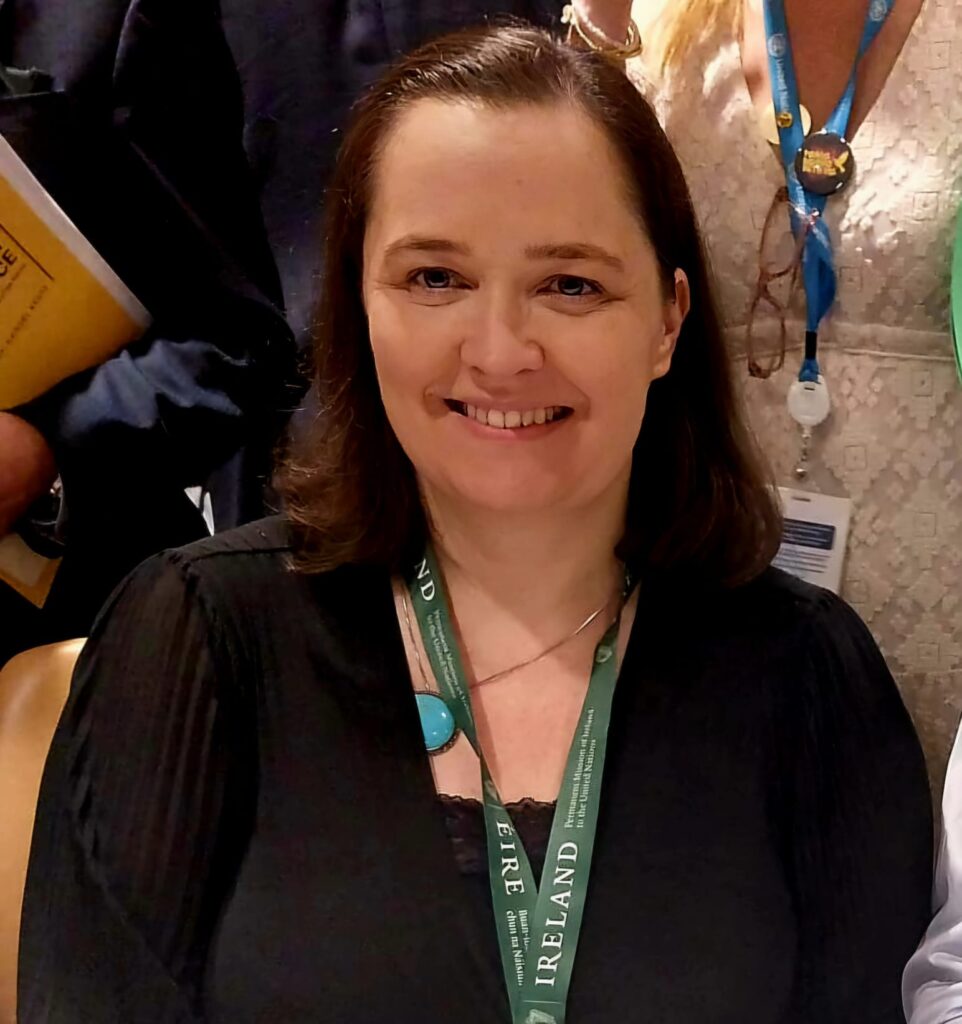
Ambassador Nuala Ní Mhuircheartaigh, Deputy Permanent Representative, Political Affairs, Permanent Mission of Ireland to the United Nations
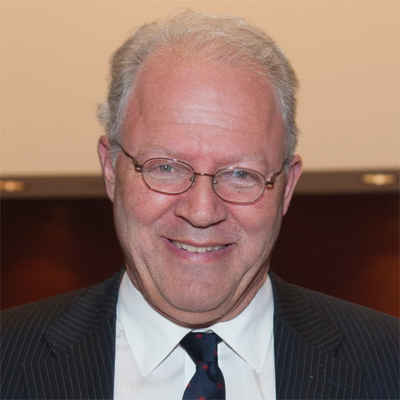
Ambassador David Donoghue, Distinguished Fellow of ODI, former Permanent Representative of Ireland to the United Nations in New York, co-facilitator of the intergovernmental negotiations on the 2030 Agenda
Born in Dublin in 1952, Ambassador David Donoghue had a long and varied career in Ireland’s Department of Foreign Affairs.
He was involved for many years in the Northern Ireland peace process. He was one of the Irish Government’s negotiators for the ground-breaking Good Friday Agreement (1998), which has provided a political framework for lasting peace and stability in Northern Ireland.
Ambassador Donoghue served at different times as the Irish Ambassador to Russia, Austria and Germany. From 2001-4 he was the Director General of Ireland’s development co-operation programme, today known as Irish Aid, and oversaw in this capacity a programme growing significantly in budget allocation and thematic and geographic range. He also served as Political Director from 2009-13, a post which gave him responsibility for Ireland’s overall foreign policy.
From 2013-17 Ambassador Donoghue was the Permanent Representative of Ireland to the United Nations in New York. At the request of the President of the General Assembly, he served as co-facilitator (with Kenya) for the UN negotiations which led to the adoption of the 2030 Agenda for Sustainable Development in 2015. He also served as co-facilitator (with Jordan) for the negotiations which produced the New York Declaration on large movements of refugees and migrants, adopted at a special summit in September 2016.
Ambassador Donoghue retired from the Irish foreign service in September 2017. Since then he has been actively involved with issues relating to the implementation of the Sustainable Development Goals and to follow-up to the New York Declaration and the related Global Compacts on Migrants and Refugees. He is contributing to the work of a number of think-tanks and academic institutions on these issues and also on issues around conflict prevention and resolution. He is, inter alia, a Distinguished Fellow at the Overseas Development Institute and a former Chairman of the Board of Conciliation Resources.
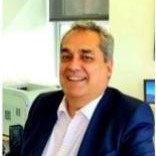
Ambassador Juan José Quintana, Deputy Permanent Representative, Permanent Mission of Colombia to the United Nations
Juan José Quintana is a career ambassador in the Colombian Foreign Service. He has been ambassador to The Hague and Montevideo and Permanent Representative to the UN and other international organizations based in Geneva. He is currently Deputy Permanent Representative to the United Nations in New York.
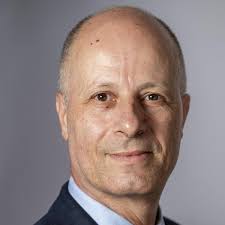
Maher Nasser, Director of Outreach Division, Department of Global Communications, United Nations
Maher Nasser has over 36 years of work experience in the United Nations System during which he has worked in Amman, Cairo, Dubai, Gaza, New York and Vienna. He is currently the Director of Outreach in the United Nations Department of Global Communications. Maher leads the Department’s engagement with civil society, academia, sports / football and the creative community, including the advertising industry and was recently appointed as the Commissioner-General of the United Nations at Expo 2025 in Osaka, Kansai, Japan. Maher Nasser is a reluctant runner and is married with three grown children.
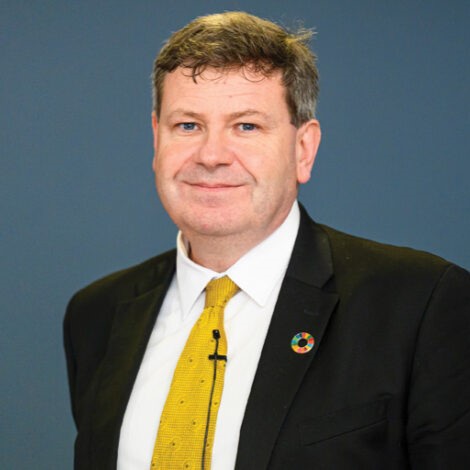
Patrick Paul Walsh, Vice President of Education and Director, SDG Academy, UN Sustainable Development Solutions Network (SDSN)
Patrick Paul Walsh received a Ph.D. in Economics from the London School of Economics in 1994. Dr. Walsh is a Government of Ireland, Marie Curie (Brussels), IZA (Bonn), RSA (London), EIIR (Brussels) and REPOA (Tanzania) fellow. He is currently on secondment to UN Sustainable Development Solutions Network (SDSN) as Vice President of Education and Director of the SDG Academy.
Dr. Walsh still remains a Full Professor of International Development Studies and is Director of the UCD M.Sc. in Sustainable Development in partnership with the SDG Academy. He was elected president of the Statistical and Social Inquiry Society of Ireland (SSISI) in 2022. SSISI is an all-island learned society established in 1847. The Society is a forum for evidence based discussions on public policy between government departments, social partners and academia. Proceedings are published in an open science diamond Journal archived in TCD TARA and listed on the Web of Science.
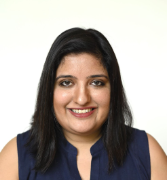
Asmita Satyarthi, Chief Executive Officer, Satyarthi Movement for Global Compassion
Asmita Satyarthi is the Chief Executive Officer at the Satyarthi Movement for Global Compassion (SMGC). She is committed to driving compassionate action and compassionate leadership across all walks of life globally, to achieve justice, peace, equality and sustainability.
A global leader and social reformer, Asmita holds an MBA from Indian School of Business. She has spearheaded various organizations, including Global Sustainability Network, Wockhardt Foundation, and Goodera, among others. She has diverse experience ranging from the US Department of Justice, International Labour Organisation to grassroot work in India and other geographies.
Asmita has received several prestigious awards including the US State Department’s ‘Exceptional Leadership for Social Justice’ award, the Rotary Club of Mumbai’s Young Achievers Award, and the Dainik Bhaskar Group’s Police Pride Award in Rajasthan
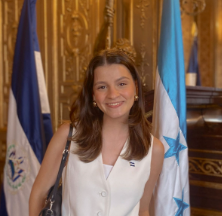
Gisselle Wolozny, Focal Point in Honduras, United Network of Young PeaceBuilders
Gisselle Wolozny is a Honduran lawyer with experience in International Cooperation and Project Management. At 23 years of age, she has worked at the United Nations Office in Honduras as well as at the Embassy of Honduras in Spain, and has participated in international programs such as the United Nations Alliance of Civilizations Program of Young PeaceBuilders in Latin America and the Caribbean, as well as the Botin Foundation’s Program for the Strengthening of the Public Service in Latin America.
She has represented Honduras abroad in conferences such as the Nobel Prize Summit 2023 where she was a panelist, as well as in the ECOSOC Youth Forum 2024 at the United Nations headquarters in New York. Currently, she is the Focal Point in Honduras for the United Network of Young PeaceBuilders, where she advocates for the implementation of the Youth, Peace, and Security Agenda in the American region and is an active member of the Network of Public Servants in Latin America and the Caribbean. She has collaborated in projects such as the UNDP’s Human Development Index in Honduras, as well as launching the Youth Platform for Democracy in Honduras.
Her trajectory stands out for her work with international organizations, civil society and government agencies on topics of public policy, democracy and civic participation. This includes her most recent role as General Director of El Milenio, a youth organization of more than 30 members, whose objective is to empower young Hondurans to position themselves as an active part in the country’s social-political arena and countering political polarization. In this position, she was Co-Founder of the electoral initiative called Emil, an Artificial Intelligence bot that gathers the professional profiles of all the candidates running for Congress, divided by department and political party.
Gisselle has a high vocation of public service and is in constant search of opportunities that help her grow as a person and professional. Her main purpose is to contribute her experience back to her country, Honduras.
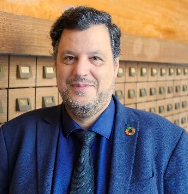
Thanos Giannakopoulos, Chief, Information Management Section, Department of Global Communications, United Nations
Thanos Giannakopoulos is the Chief of the Information Management Section and the Dag Hammarskjold Library of the United Nations headquarters. He has re-envisioned the UN Dag Hammarskjöld Library as an open space for public dialogue, debate, and equitable knowledge sharing, while also strengthening the Section’s role as an essential component for managing the UN’s parliamentary and research digital output. Under his leadership, the UN released the United Nations Digital Library, a central repository for the UN Secretariat aimed at promoting permanent access to UN content and furthering the Organization’s commitment to the widest possible dissemination and sharing of its outputs. In 2023, the system recorded over 61 million downloads from 12,000 locations worldwide. Several other scholarly communication products and digital workflow projects have been developed under his stewardship to contribute to the UN’s information management best practices portfolio. These include a change management initiative that led to the development of the Strategic Outlook 2020-2025 and, more recently, to the Section’s updated Strategic Outlook 2024-2028, as well as a new annual series of publications, a global, collaborative UN Open Science conference, an information analysis digital workflow, a UN grey literature project and a generative AI experimentation endeavor.
Prior to his role at the UN, Thanos served as the head librarian for the European Molecular Biology Laboratory in Heidelberg, Germany, and for the International Atomic Energy Agency in Vienna, Austria. He can be reached at: Thanos.Giannakopoulos@UN.org
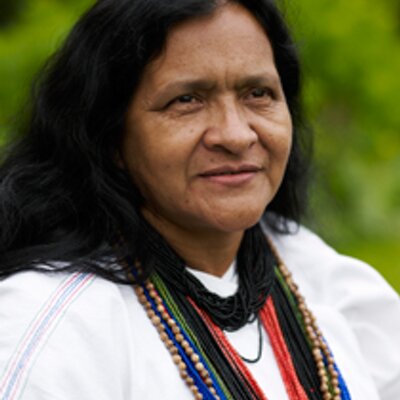
H. E. Ambassador Leonor Zalabata Torres, Permanent Representative, Permanent Mission of Colombia to the United Nations
Ambassador Zalabata Torres is the first indigenous woman appointed as her country’s ambassador to the United Nations. She served in various capacities as an advocate for the rights of indigenous peoples in Colombia and environmental justice. Moreover, the Ambassador has also worked to improve the political representation of indigenous women and peoples.
She is a member of the Human Rights Committee for the Tayrona Indigenous Confederation in the National Indigenous Human Rights Committee (Colombia). A founding member and Coordinator of the Health Program for La Sierra Nevada de Sta. Marta, she is also co-author of the National Guidelines for Bilingual and Intercultural Education Program for the Arhuaco people.
